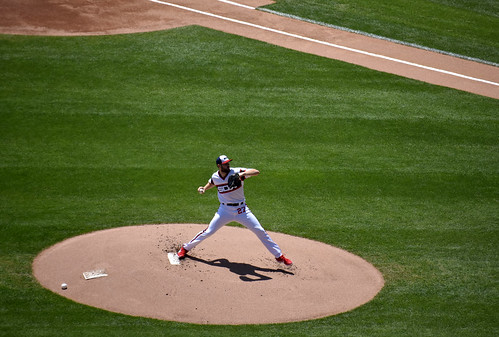Angels salary dump: Why Lucas Giolito, Hunter Renfroe, others were reportedly cut weeks after trade deadline
Giolito #Giolito

The Los Angeles Angels have placed starting pitcher Lucas Giolito, relief pitchers Matt Moore, Dominic Leone, and Reynaldo López, and outfielders Hunter Renfroe and Randal Grichuk on waivers, according to ESPN’s Jeff Passan. Trades are not allowed after the Aug. 1 deadline for players who have appeared in the majors this season, meaning that the Angels will not receive any compensation if/when other teams claim those players. In other words, this is a potential mass salary dump.
The Angels had just acquired Giolito, López, Leone, and Grichuk one month ago at the trade deadline in hopes of making a postseason run. Murphy’s law has since applied to the franchise. Impending free agent Shohei Ohtani tore his UCL, ending his season as a pitcher; star outfielder Mike Trout returned from injury for a single game before going back on the shelf; and so on. The Angels have amassed a 7-18 record in August, pushing them well outside of the playoff picture.
To make sense of why the Angels did what they did and what comes next, below CBS Sports has answered five pertinent questions about this surprising development.
1. Why would the Angels do this?
To save money. Provided other teams claim these players, the Angels will essentially trim their big-league payroll as well as their luxury tax number. That second part is likely crucial to owner Arte Moreno, since going over the tax line means that the team in question has to pay an overage fee. (Teams who pay the luxury tax are also penalized when it comes to compensatory draft picks, an important point if the Angels lose Shohei Ohtani in free agency.)
The official Competitive Balance Tax calculations aren’t computed until the end of the season, and the publicly available estimates tend to vary. Some sites, like Spotrac, have the Angels over the tax line by $5 million.
If that number is correct, then the Angels can duck under the line if several of the players are claimed.
2. Are these players likely to be claimed?
The smart money is on yes for most, if not all of them. Sure, some of the players, including Giolito and Grichuk, have performed poorly since joining the Angels. But there is a reason those players were in demand at the trade deadline. Besides, it’s rare that teams get the opportunity to add external veteran talent of any magnitude at this point in the season, and the financial costs associated with those players are trifling for most teams compared to the money the franchise would earn if they find themselves playing in October.
3. How do waivers work?
Simply, the waiver order is the inverse order of the standings. The worse a team’s record is, the better their priority. The best teams, meanwhile, are at the end of the line, giving them the worst chance at landing any of these players. Lest anyone wonder, there is no “back of the line” aspect at play here, like there are in some fantasy leagues. A team remains in whatever spot corresponds to its record no matter how many of its claims are successful.
4. Which contenders could benefit the most?
Again, the teams best positioned to add some of these players are largely those who are furthest back from a playoff spot. Coming into Tuesday, here’s the waiver priority order for every team within six games of a playoff spot who would not make the postseason if it were to begin tomorrow.
Do note that the Toronto Blue Jays are actually behind three squads who would make the playoffs: the AL Central-leading Minnesota Twins and both the Chicago Cubs and the Arizona Diamondbacks, who are holding onto NL wild card slots.
5. Players remain playoff eligible
You might wonder if these players are just regular season rentals, or if they’ll be able to suit up should their next teams make it to October. The answer is the latter. Should these players help their new teams reach the playoffs, they will be able to enjoy the fruits of their labor by partaking in the games.